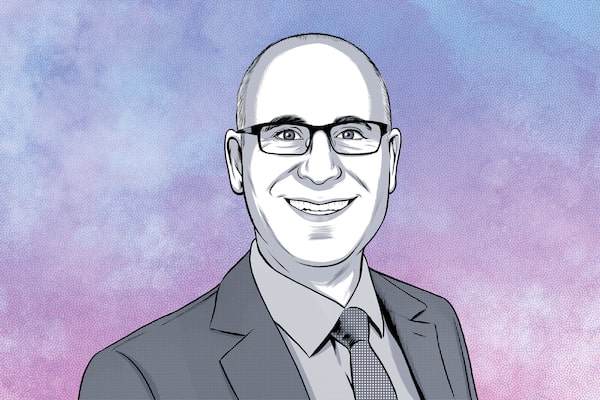
Barry SchwartzThe Globe and Mail
Money manager Barry Schwartz isn’t holding a bunch of cash for his clients, waiting for the markets to recover. The way he sees it, investors should set aside cash on their own and use his team to invest money they need later in life.
“Our approach is that . . . if a client wants to invest and they believe in our style, I’m going to put their money to work,” says Mr. Schwartz, chief investment officer and portfolio manager at Toronto-based Baskin Wealth Management, which oversees $1.8-billion in assets.
If he held cash on the sidelines, Mr. Schwartz would essentially be trying to time the market – a strategy he says few investors do successfully.
“We don’t pretend to know what’s going to happen next with the stock market and interest rates and inflation,” Mr. Schwartz says. “I always tell clients to keep a year or two worth of your cash flow needs in the bank – that’s your protection. I’m not going to charge you fees to crystal ball the portfolio.”
His firm holds about 30 stocks for clients in separately managed accounts and bonds. The stock-bond mix depends on the investor’s risk tolerance and investment goals, which are updated regularly.
His firm’s long-term growth composite, which includes a mix of up to 85 per cent equities (and the rest fixed income) is down 14.9 per cent year-to-date as of July 31 and down 10.1 per cent over the past year. Since its inception on Jan. 1, 2019, it has seen an annualized return of 10.2 per cent. The numbers are based on total returns and net of fees.
The Globe recently spoke to Mr. Schwartz about what he’s been buying and selling, including a trade that led to his firm owning its first energy stock since 2015.
Describe your investment style.
We’re looking for the best businesses we can buy, wherever we can find them, in countries and geographies that are amenable to business. We try and stay away from anything outside North America for the most part; although we may look at Western Europe. For us, the best businesses are those that generate a lot of free cash flow, have recurring revenue, pricing power and a competitive advantage with their product or service or geography. They also don’t need a lot of capital to grow the business. We also like companies that make products people can’t live without – like Apple, which has been our largest holding since 2012. We also look for companies with excellent management teams. An example there is Constellation Software, another big holding of ours.
What have you been buying and selling lately?
Our turnover is quite low, about 10 per cent annually. Two trades we did recently include selling Canadian Apartment REIT and buying Adobe Inc. and selling Charter Communications Inc. and buying Canadian Natural Resources.
We’ve always been attracted to Adobe and decided to buy it when it came off earlier this year as part of the broader tech selloff. To us, this is one of the top 10 businesses in the world and it fell to a really reasonable level. Canadian Apartment REIT is a fine business, but Adobe has a chance to grow 10 to 15 per cent a year and that’s not going to happen to that REIT, in our opinion.
The other trade – selling telecom company Charter Communications and buying Canadian Natural Resources – is a little controversial for us, since we often say we don’t own companies that are price takers – which means they have no control over the price of the product they sell. Canadian Natural is a price taker by selling oil and gas, but we saw good reason to add that name. The company has terrific management, in our opinion, and a strong track record of growing production as well as dividend increases. We’re attracted to the cash flow. It may not be a fast-growing tech stock, but we think it provides some volatility protection for clients. Energy security is going to be a hot topic. Canada is a friendly place to do business and Canadian Natural Resources has decades and decades of oil supply. That’s very attractive to us. We sold Charter because we are concerned about its organic growth, increasing competition and worries about the long-term sustainability of its balance sheet.
Name a stock you wish you bought or didn’t sell.
We owned Warren Buffett’s Berkshire Hathaway Inc. for about five years and then sold it August, 2020, which was a mistake in hindsight. We recently bought it back at US$100 more than we sold it for, at around US$300. The lesson here is to not be afraid to buy back something you’ve sold. Too often I think investors sell a stock and never look back.
What investing advice do you give friends and family when they ask?
Everybody wants to know what the market is going to do in the next six months. I tell them that the short term is uncertain, but what is certain is if you buy and stick with a basket of great businesses long term, chances are you’ll do well. Also, once you’ve found a gem, hold on to it.
This interview has been edited and condensed.
Be smart with your money. Get the latest investing insights delivered right to your inbox three times a week, with the Globe Investor newsletter. Sign up today.